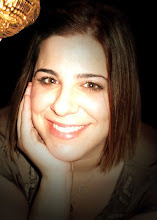Behind-the-Scenes (5)
7:40 AM | Posted by
Rane Anderson
CHOOSING THE OPERA TO FIT THE BOOK
It took a bunch of research, and it wasn't an easy choice.
I knew I wanted to include a trip to the opera in this story because opera is one of the first things people associate with Italy. I didn't actually write the scene--though it takes place relatively early in the book--until I had written 3/4 of the novel. That's because I had to choose an opera that could parallel many of the components in the story. So part of my research was listening to arias on YouTube and researching their lyrics. This is what I chose, and in my mind, it is a perfect choice!
Here is the Italian-English translation I found on a website:
O Mio Babbino Caro Italian Lyrics
O mio babbino caro,
mi piace, è bello bello,
vo’andare in Porta Rossa
a comperar l’anello!
Si, si, ci voglio andare!
E se l’amassi indarno,
andrei sul Ponte Vecchio
ma per buttarmi in Arno!
Mi struggo e mi tormento,
O Dio! Vorrei morir!
Babbo, pietà, pietà!
Babbo, pietà, pietà!
O Mio Bambino Caro English Translation
Oh my dear father,
I like him, he is very handsome.
I want to go to Porta Rossa
to buy the ring!
Yes, yes, I want to go there!
And if my love were in vain,
I would go to Ponte Vecchio
and throw myself in the Arno!
I am pining and I am tormented,
Oh God! I would want to die!
Daddy, have mercy, have mercy!
Daddy, have mercy, have mercy
If you've read all five chapters of WiSG?, you've probably noticed that I mention the "Ponte Vecchio" often, which is one of the oldest bridges in Italy. As I said in another behind-the-scenes post, the Ponte Vecchio is also illustrated on the front cover, which is taken from one of the scenes later in the book. The book cover depicts Emily leaping--or at least looking like she is jumping--off the Ponte Vecchio (I don't want to give anything away here, so I decided to be tricky with my wording). That whole scene was inspired by O Mio Bambino Caro.
As I went through several rewrites, Emily's "jumping" (or not jumping) into the Arno river becomes a major theme. And it just shows-----although readers read from front to back-----writers write the book inside out, from which way and that way and all ways. (If that makes sense! Ha!)
Gianni Schicchi was written by Puccini in 1912. It's actually one of three "mini" operas that are included in Il trittico.
Thanks for reading, and I hope you enjoyed chapter five! :)

O Mio Babbino Caro Italian Lyrics
O mio babbino caro,
mi piace, è bello bello,
vo’andare in Porta Rossa
a comperar l’anello!
Si, si, ci voglio andare!
E se l’amassi indarno,
andrei sul Ponte Vecchio
ma per buttarmi in Arno!
Mi struggo e mi tormento,
O Dio! Vorrei morir!
Babbo, pietà, pietà!
Babbo, pietà, pietà!
O Mio Bambino Caro English Translation
Oh my dear father,
I like him, he is very handsome.
I want to go to Porta Rossa
to buy the ring!
Yes, yes, I want to go there!
And if my love were in vain,
I would go to Ponte Vecchio
and throw myself in the Arno!
I am pining and I am tormented,
Oh God! I would want to die!
Daddy, have mercy, have mercy!
Daddy, have mercy, have mercy
If you've read all five chapters of WiSG?, you've probably noticed that I mention the "Ponte Vecchio" often, which is one of the oldest bridges in Italy. As I said in another behind-the-scenes post, the Ponte Vecchio is also illustrated on the front cover, which is taken from one of the scenes later in the book. The book cover depicts Emily leaping--or at least looking like she is jumping--off the Ponte Vecchio (I don't want to give anything away here, so I decided to be tricky with my wording). That whole scene was inspired by O Mio Bambino Caro.
As I went through several rewrites, Emily's "jumping" (or not jumping) into the Arno river becomes a major theme. And it just shows-----although readers read from front to back-----writers write the book inside out, from which way and that way and all ways. (If that makes sense! Ha!)
Gianni Schicchi was written by Puccini in 1912. It's actually one of three "mini" operas that are included in Il trittico.
Thanks for reading, and I hope you enjoyed chapter five! :)

I'd also love for you to "like" my author facebook fanpage :) :)
Until next time,
RANE





